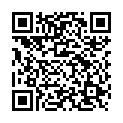|
|
|
| Module code: MEB_24_A_1.06.TEA |
|
|
2SU (2 hours per week) |
|
2 |
| Semester: 1 |
| Mandatory course: yes |
Language of instruction:
English |
Assessment:
project work and presentation
[updated 30.04.2024]
|
MEB_24_A_1.06.TEA (P241-0420, P241-0421) Mechanical Engineering, Bachelor, SO 01.10.2024
, semester 1, mandatory course
Suitable for exchange students (learning agreement)
|
30 class hours (= 22.5 clock hours) over a 15-week period.
The total student study time is 60 hours (equivalent to 2 ECTS credits).
There are therefore 37.5 hours available for class preparation and follow-up work and exam preparation.
|
Recommended prerequisites (modules):
None.
|
Recommended as prerequisite for:
MEB_24_A_4.12.AEW Academic English Writing
[updated 22.01.2026]
|
Module coordinator:
Dr. Julia Frisch |
Lecturer:
Sebastian Barth, M.A.
[updated 30.04.2024]
|
Learning outcomes:
The modules “Technical English for Academic Purposes” and “English Academic Writing” as well as the foreign language component “Presenting in English” of the “Project in Mechanical or Process Engineering” are to be seen in context. Starting out from the required entry level B2, these modules help students to progress from level B2 to C1 in English as a foreign language.
In the module “Technical English for Academic Purposes”, students train the four skills – listening, reading, speaking and writing – for academic purposes in an integrated way.
After successfully completing this course, students are able to understand technical information presented in academic talks and lectures. They will be able to apply the note-taking methods they have learned and can structure the information efficiently.
Students will also be able to understand academic texts from their field of studies. Using the reading strategies they have acquired, they will be able to research specific topics and examine the results critically.
They will have mastered strategies for producing professional presentations in English. They will be able to structure a presentation in English and use the typical language of presentations they have learnt to prepare and deliver a presentation.
Furthermore, students will be able to write technical texts, e.g. about the components and functions of mechanical systems.
Finally, students will be able to communicate efficiently and appropriately in the academic context both orally and in writing.
In doing so, they will have further developed their understanding of functional language use and expanded their technical English vocabulary.
[updated 26.04.2024]
|
Module content:
- Communicating efficiently and appropriately (formal vs informal) in the academic context: Writing emails, making appointments, etc.
- Listening comprehension of academic talks and lectures: Note-taking
- Reading comprehension of technical texts: Reading strategies (scanning, skimming)
- Introduction to English presentations (signposting language, structure, etc.) and mock presentations
- Introduction to technical writing: e.g. Describing parts and functions of simple mechanical systems
- Working correctly with sources (meaningful use, correct citation, creation of source and bibliography)
- Word processing and formatting
- Development of functional language use (e.g. describing cause and effect) and technical vocabulary
[updated 26.04.2024]
|
Teaching methods/Media:
Teaching methods:
The learning goals will be achieved through the integrated training of the four basic skills (listening comprehension, reading comprehension, speaking and writing) supported by multimedia, as well as the revision of basic grammar and vocabulary in self-study phases.
Media:
Teaching and learning materials (print, audio, video), multimedia teaching and learning software and WBTs for specific target groups.
[updated 26.04.2024]
|
Recommended or required reading:
- Christine Sick, unter Mitarbeit von Miriam Lange: TechnoPlus English 2.0. Ein multimediales Sprachlernprogramm für Technisches Englisch und Business English. EUROKEY.
- Christine Sick, unter Mitarbeit von Lisa Rauhoff und Miriam Wedig (seit 2016): Online Extensions zu TechnoPlus Englisch, EUROKEY.
Rosenberg, Barry J. Spring into Technical Writing for Engineers and Scientists. Addison-Wesley Educational, 2005.
Northedge, Andrew, et. al. The Good Study Guide. The Open University Worldwide, 2005.
- Various online resources and authentic texts, videos and audio recordings
[updated 26.04.2024]
|

